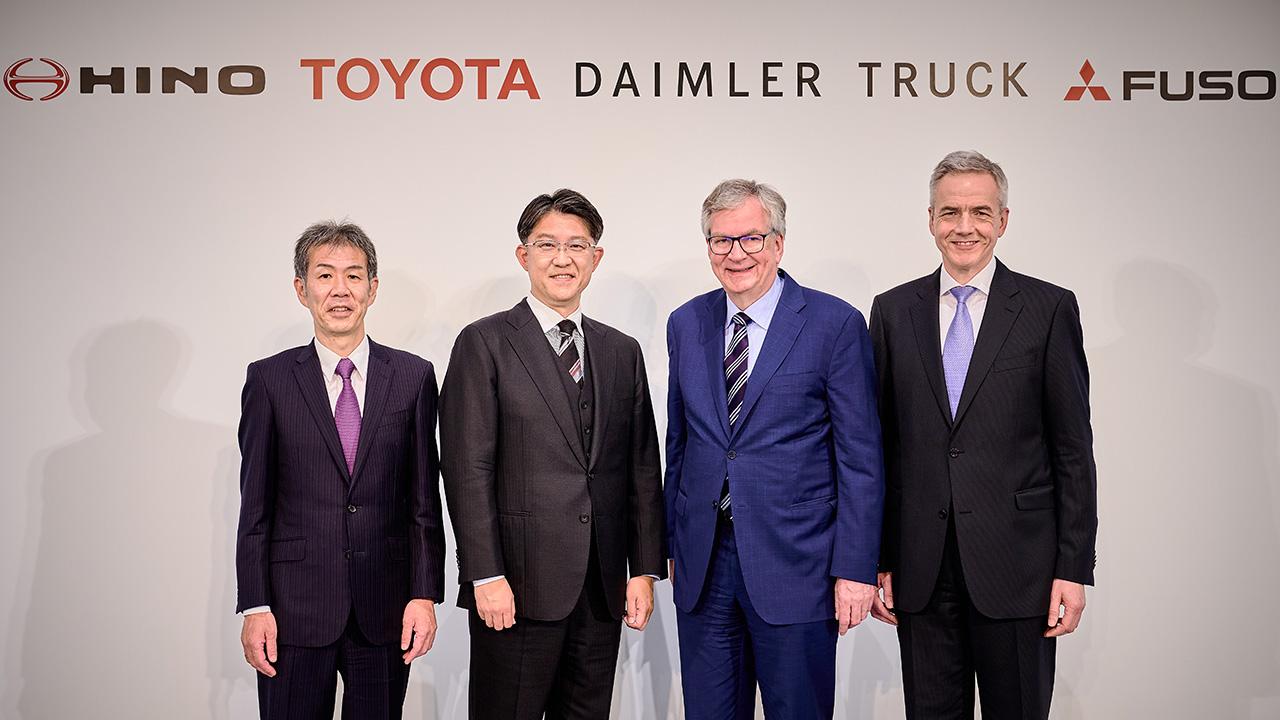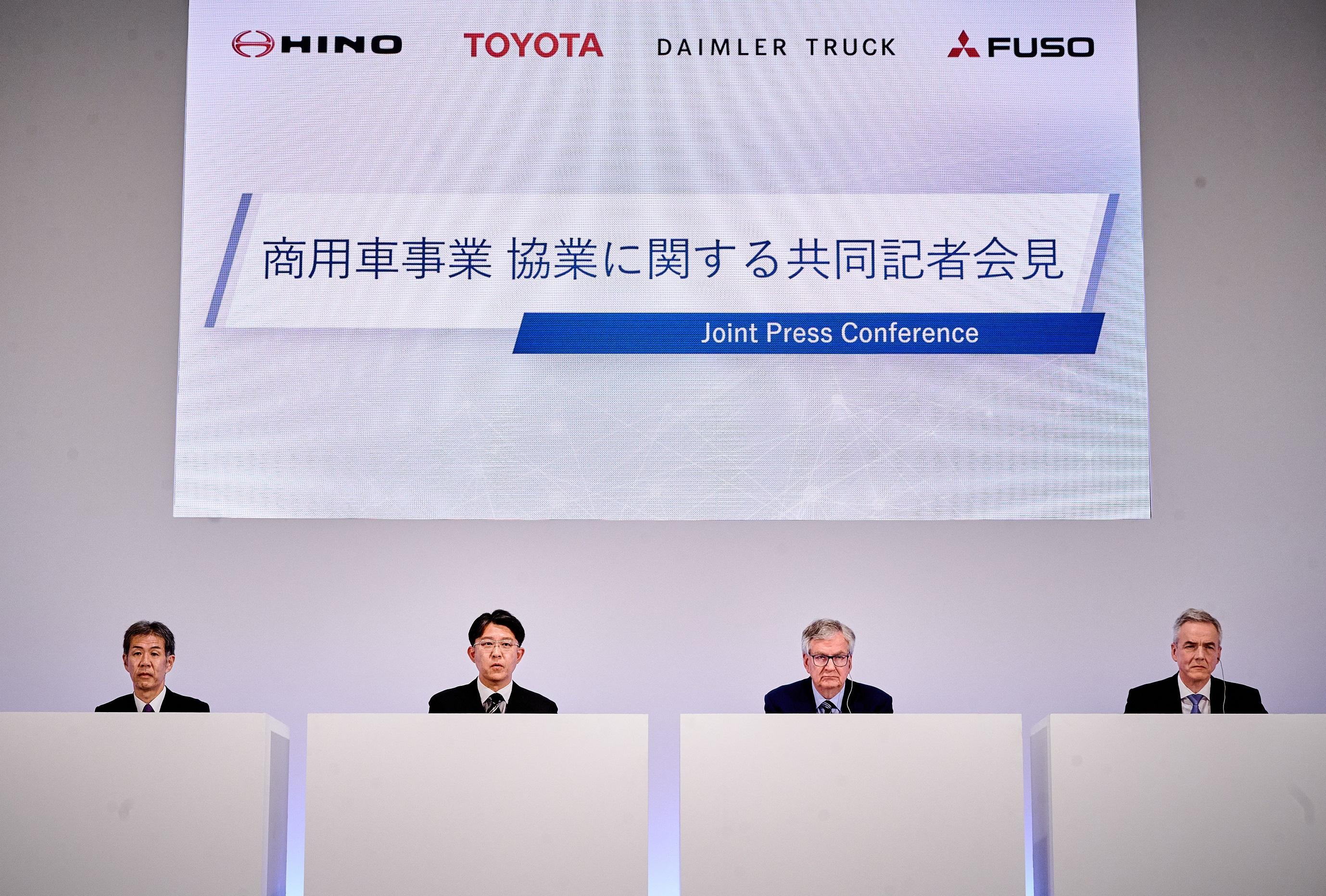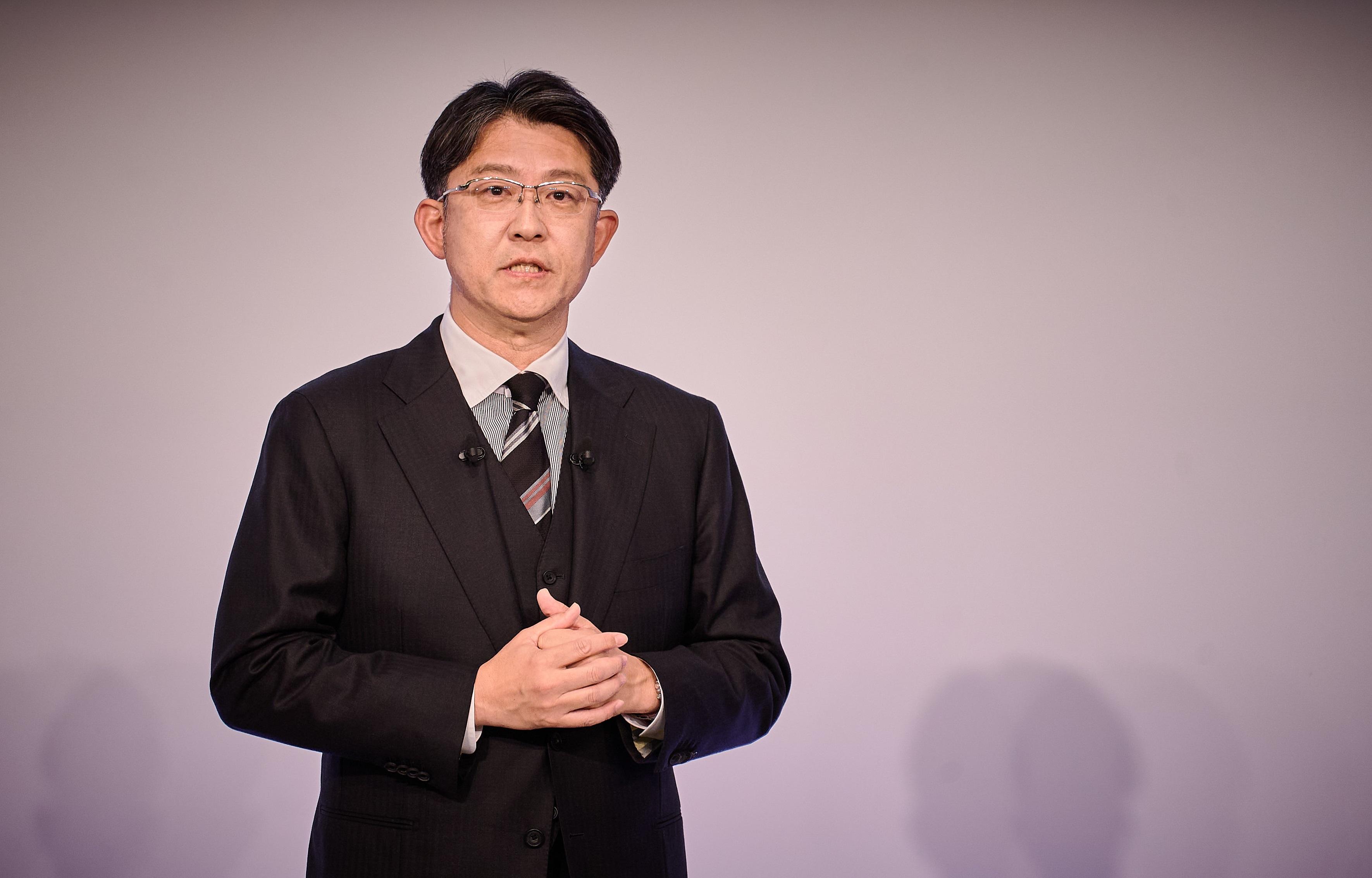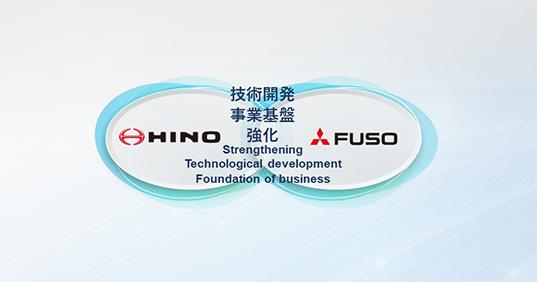
Two of Japan's top commercial vehicle manufacturers are merging. Together with parent companies Daimler Truck and Toyota, they seek the competitive strength to survive in the decarbonization age and shape the future of commercial vehicles.

On May 30, it was announced that Mitsubishi Fuso Truck and Bus (MFTBC) and Hino Motors have agreed to merge.
They will seek economies of scale through joint development, procurement, and production. At the same time, the pair will speed up the decarbonization of the transportation industry by drawing on the CASE technologies of their respective parent companies, Daimler Truck and Toyota.
The merger will also entail the establishment of a holding company, with shares split evenly between Daimler Truck and Toyota.
Although Mitsubishi Fuso and Hino will become wholly owned subsidiaries of the new company, both will retain their brands and sales networks in Japan and abroad. They plan to finalize the agreement within the fiscal year to March 2024, with the merger to be carried out by the end of that calendar year.
The heads of all four companies gathered to outline their aims and vision for the partnership. Toyota Times shares their speeches from the joint press conference.

Our focus area is hydrogen – President Sato (Toyota)
First up, Toyota President Koji Sato provided the background and overview of the business merger.
President Sato

Today, Daimler Truck, Mitsubishi Fuso, Hino, and Toyota have agreed to work together on strengthening their commercial vehicle businesses.
Mitsubishi Fuso and Hino will merge on an equal footing to strengthen their global competitiveness. In addition, our four companies will pursue new possibilities in commercial vehicles by leveraging the CASE technologies of Daimler Truck and Toyota.
Today I would like to talk about the aims and vision behind this collaboration.
Behind this partnership lies a strong desire, shared by our four companies, to build the future of commercial vehicles together.
Commercial vehicles sustain our daily lives through the movement of people and goods, serving as a vital source of mobility that is part of the social infrastructure. Integrating these vehicles into social systems can further boost the value of mobility.
To achieve carbon neutrality, the commercial vehicles that currently make up 40% of global automotive CO2 emissions must evolve into an environmentally-friendly mode of mobility.
In other words, the challenge of building a new future for commercial vehicles will play an important role in creating a prosperous mobility society.
The key to this future lies in CASE technologies such as electrification and autonomous driving. These technologies can only serve society if widely adopted, and require the capabilities to develop them.
In this CASE era, the relatively small size of Japan’s commercial vehicle market means that individual companies will struggle to survive on their own.
To create a prosperous mobility society, what we need is not just competition, but all of us working together to create the future.
With this mindset, we hope that our four-way partnership will help to accelerate the spread of CASE technologies.
Through the merger, Mitsubishi Fuso and Hino will seek to boost synergies and streamline development, procurement, and production, thereby strengthening their competitiveness and business foundations for pursuing CASE technologies.

Daimler Truck and Toyota will combine their respective strengths to support the merged companies with CASE technologies, while also working to further enhance the technical capabilities between them.
The coming together of our four companies also opens up new possibilities for the future.
In particular, we see initiatives in the hydrogen domain as a key focus area for cooperation, contributing to the creation of a prosperous mobility society.
Daimler Truck and Toyota were quick to recognize the potential of hydrogen energy and have driven the development of fuel cell and hydrogen engine technologies.
We have also worked to commercialize products and establish hydrogen infrastructure to promote the widespread use of these technologies.
Together with Mitsubishi Fuso and Hino, our companies plan to speed up the adoption of hydrogen mobility, beginning with commercial vehicles.
Our joint effort to create this future starts with the merging of Mitsubishi Fuso and Hino to establish the business foundations for competing on the global stage.
Through robust competition, we will contribute to a better future for commercial vehicles.
With Mr. Daum, CEO of Daimler Truck, we’ve talked about shaping the future of commercial vehicles, the need for scale in promoting the widespread adoption of CASE technologies, and the idea that the future is ours to create together.
While sharing these aspirations and values, we discussed how the partnership should come together.
This process allowed us to confirm each other’s visions, and I believe we had very meaningful discussions.
I would like to invite Mr. Daum to share his thoughts on this collaboration.

